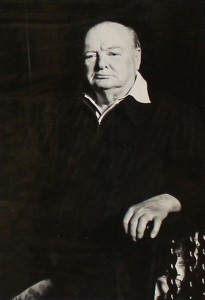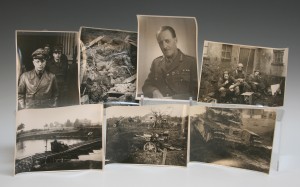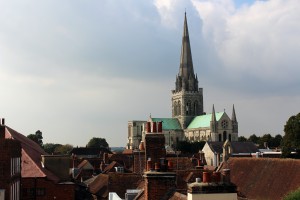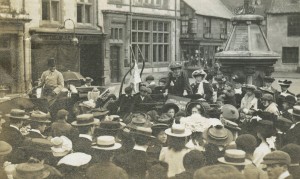
70 years ago, on the 7th May 1945, the Allies formally accepted the unconditional surrender of Nazi Germany’s armed forces. What had been fought for were the ideals of liberty, freedom, justice and fairness. But we had also fought for our national identity, bound up with the narrative of our island history and the English Romantic tradition.
Whenever the English find themselves under threat, they turn to their monarchy, their church and their landscape; our nation’s identity is bound together by these timeless threads. As 1944 drew to a close Winston Churchill said “A love for tradition has never weakened a nation, indeed it has strengthened nations in their hour of peril.”
Victory in Europe, VE Day, was celebrated on the 8th May 1945 with a public holiday. There was a sense of relief and exhilaration at the end of six years of war. Stepping stones of defeat and been turned to triumph. The hard fight to free Europe restored, preserved and changed our nation’s ideals and identity.

In response to the attack by British Bomber Command on Lubeck in March 1942 Hitler ordered bombing raids on old historic English cities, noted as important places to visit in the Baedeker travel guides of the period. They became known as the Baedeker bombing raids. Targets often included our Cathedral cities like Canterbury, York and Exeter. In so doing the Nazis sought to strike at the very identity of our nation, the quintessentially English. Remarkably the Cathedrals of Canterbury, York and Exeter survived. The tragic loss of life and homes failed to diminish morale.

Although bombed on three occasions Chichester remained relatively unscathed and it is for this reason that it gives us such a wonderful and complete picture of an ancient English Cathedral city.

At the heart of our modern freedom is our democratic right to vote. The Reform Acts, from 1832 onwards, had successively extended democratic voting rights to broader sections of British society. Women’s suffrage became a national movement in 1872. It was the efforts of suffragettes like Mary Gawthorpe and Emily Pankhurst which brought limited rights for women to vote in 1918. But it was not until the Conservative government passed the 1928 ‘Representation of the People (Equal Franchise) Act’ that all women over the age of 21 were given the vote. Women’s working roles during the war had been vital to Britain’s success. Women’s votes and equal rights would shape the future of British society.
Victory in 1945, and political victories before and since, have shaped our nation, upholding and defending our ideals of liberty, freedom, justice and fairness.
It is perhaps fitting, then, that our Parliamentary elections should fall on such an auspicious day as the 7th May 2015.
Late in the war the House of Commons was bombed. Reflecting on its rebuilding, in October 1944, Winston Churchill said “We shape our dwellings, and afterwards our dwellings shape us.” Our freedoms have been hard won and costly to defend. Rights come with responsibility. Our universal right to vote and shape our nation through the House of Commons is a vital responsibility.
By Revd. Rupert Toovey. Originally published on 6th April 2015 in the West Sussex Gazette.